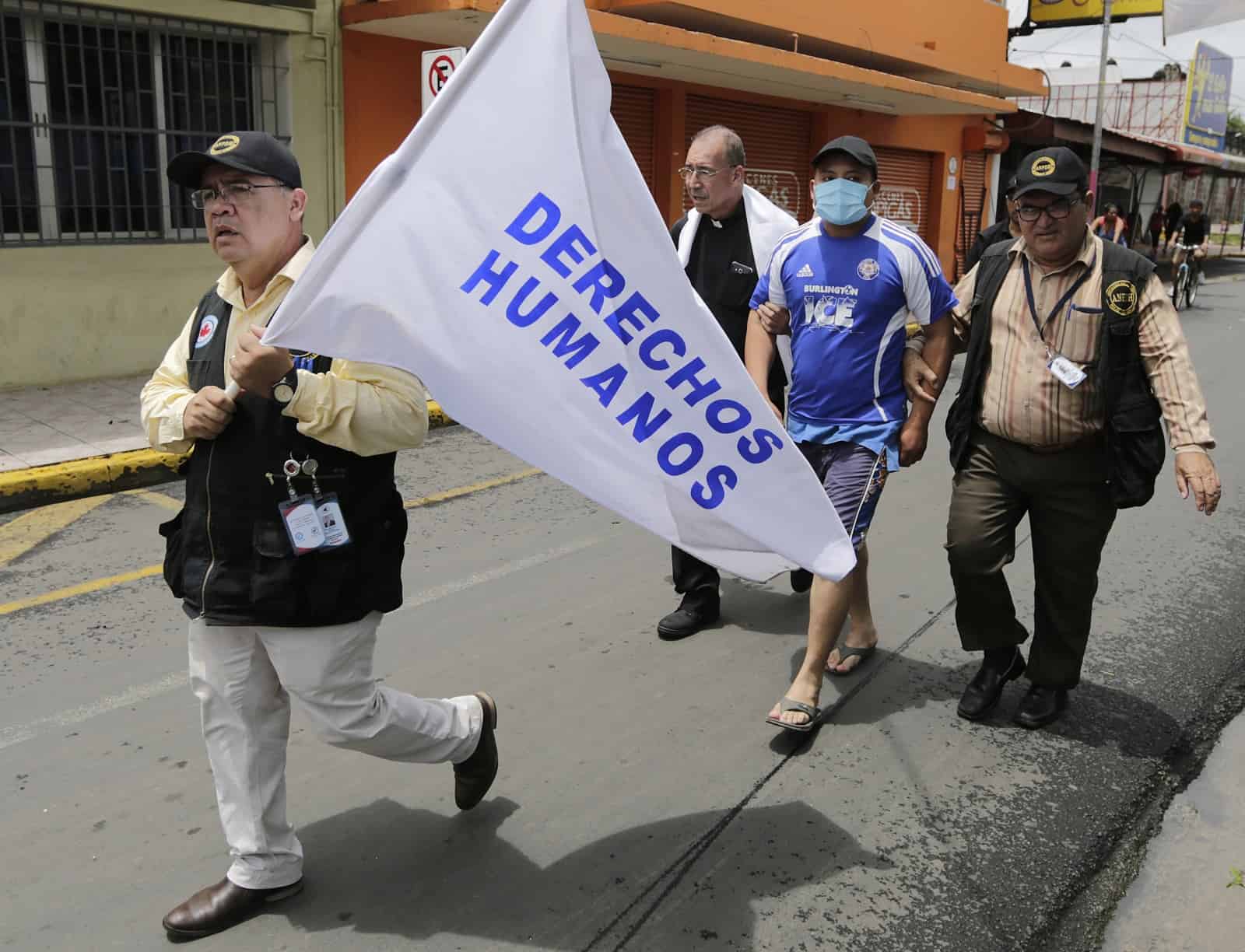The rule of law is deteriorating in Nicaragua ahead of November’s general elections, UN rights chief Michelle Bachelet warned Thursday, demanding swift reforms to ensure a free and fair vote.
Bachelet said the sociopolitical and human rights crisis in Nicaragua, which erupted with protests in April 2018, had been exacerbated by the Covid-19 pandemic, as well as by hurricanes Eta and Iota which struck last November.
The Nicaraguan government has labelled the opposition putschists and terrorists over the 2018 protests that left 300 dead after security forces violently put down the demonstrations.
Presenting a report on the Central American country covering August 2019 to the end of 2020, the UN High Commissioner for Human Rights said rights violations perpetrated during the protests “remain unpunished”.
“As Nicaragua approaches general elections on November 7, 2021, the rule of law continues to deteriorate,” Bachelet told the UN Human Rights Council in a video message.
Nicaragua’s parliament, dominated by President Daniel Ortega’s party, approved a controversial law in December which critics said was aimed at preventing opposition politicians from standing in the election.
“The recent adoption of several laws contrary to the rights to freedom of association, expression, political participation and due process is a clear example of the continued restriction of civic and democratic space,” Bachelet said.
Arbitrary detentions
The former Chilean president said her office had documented 117 cases of harassment, intimidation and threats by police officers or pro-government elements against students, peasants and activists.
It had also recorded 34 cases of intimidation, threats, criminalisation and smear campaigns against media outlets and journalists.
She said arbitrary detentions were still going on, while indigenous communities continued to face land invasions by settlers.
In power since 2007 and accused by the opposition of having established a dictatorship marked by corruption and nepotism, former left-wing rebel leader Ortega is expected to stand for a potential fourth term in the elections.
Bachelet urged the Nicaraguan government to allow her office access to the country to monitor human rights in the context of the vote.
“It is crucial that the necessary reforms be adopted to ensure free, fair and transparent elections,” Bachelet said.
Bachelet’s report called on Nicaragua to immediately halt arbitrary detentions, undue restrictions to freedom of movement and threats against peaceful protesters and those voicing different opinions from those of the government.
In response, Attorney General Wendy Morales Urbina said the Nicaraguan government expressed its “absolute rejection” of Bachelet’s report, branding it “unilateral, biased and lacking in objectivity”.
“The government forcefully rejects these types of interventionist and interfering reports which are continuously aimed at disqualifying and denigrating our national authorities and institutions,” she said.
She called the report “yet another aggression in the chain of imperialist aggressions that have promoted crimes of hate, terrorism and destruction” in Nicaragua.
“In this discredited, tarnished and disfigured council, the Nicaraguan people do not feel represented,” she added.






